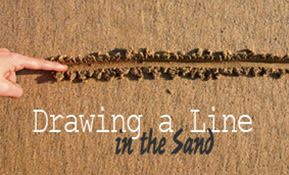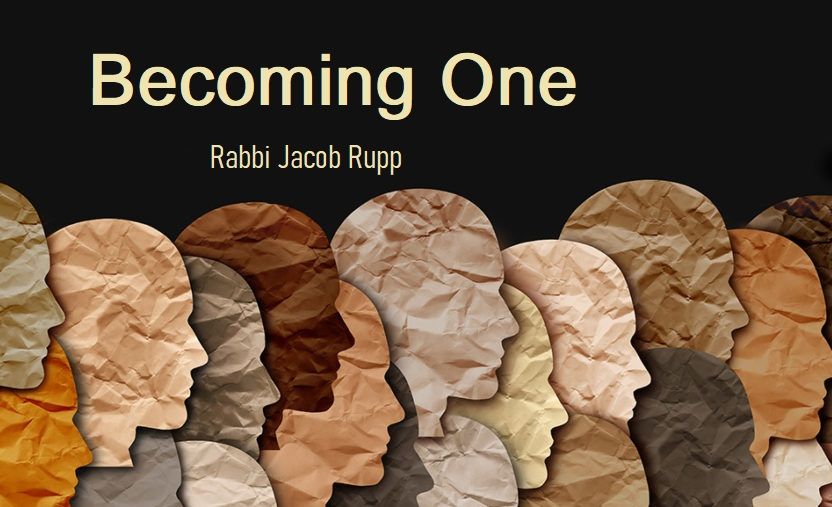
Mishpatim: Look Before You Leap…Right?
When we trust Hashem, we find that it was not wrong or foolish to blindly accept those mitzvot we had not yet learned. “Buyer Beware” does not apply here.

The thing I miss the most about America, besides my family of course, is Costco. If Israel had a superstore that sold everything under the sun at discounted prices and in greater quantities than anywhere else, my adjustment to life in Israel would have been much smoother. After all, what could be better than two gallons of mayonnaise for less than $10.00? Costco also offers nice clothing at very reasonable prices. But since there's no proper changing room, I would often end up purchasing things that looked terrible on me. I am not a suave consumer and I never researched my purchases. And while that was unwise, the greatest moment in Jewish history, the giving of the Torah, occurred as a result of our ancestors agreeing to something before knowing what it entailed.
In Parshat Mishpatim, the Jewish people proclaim (Shemot 24:7), “Everything that God has said, we will do and we will hear!” Rashi explains that these words were proclaimed even before the Ten Commandments were given. Why didn’t the Jewish people wait to hear the extent of their obligation before accepting it? It is wise to know what you're getting yourself into before agreeing to it. According to Rashi, because of this response, the Jewish people were elevated to a level of holiness unparalleled in history. By unilaterally pledging to follow the mitzvot prior to having received them, our ancestors expressed their trust in God.
Some people who misunderstand the Torah, or do not view it as Divine, label those who are mitzvah-observant as foolish, brain-washed, or hopelessly out of date with modern thinking. I know, having been there myself. While these critiques may sound like they originated on the college campus, they are as old as time. In the time of the Talmud, the seemingly blind acceptance of the mitzvot was the foundation for insults and accusations heaped against the Jewish people by the rebellious Sadducees.
Trust in God
The Gemara (Shabbos 88b) tells the story of a Sadducee who taunted Rava, saying that the Jewish people are foolish and impulsive because they “put their mouths before our ears.” The Sadducee claimed that the Jews had been foolish to accept God’s laws before knowing what they entailed, and that that demonstrated that the Jewish people are foolish by nature. Rava replied that the Jewish people trust God and know that He would never expect the impossible from them. At Mount Sinai, the Jews knew that God would only give His beloved nation statutes and conditions that would bring out their best. Rava proceeded to point out that because the Sadduccees were devious and corrupt, they projected their distrust on others, and as a result, they viewed the Israelites’ act of perfect loyalty as foolishness.
Today, as in the times of the Sadduccees, trust in God remains a profound challenge. We can't see the effects of our actions, nor can we fathom God’s wisdom in choosing the specific actions that He set aside as mitzvot. Although there are some obvious benefits to such mitzvot as Shabbat and kashrut, the true reasons remain elusive. The Torah, for example, teaches us that tefillin connect man with God, but it is impossible for us to even begin to understand how little black boxes can bind us to the Almighty. Although we cannot comprehend the mitzvot, we must choose whether or not we will keep them. How can we make such a monumental decision without perfect clarity? Through trusting that Almighty knows what is best for us.
We learn in Duties of the Heart, by Rabbi Bachaya ben Joseph ibn Pakuda, that both in religious and secular matters, the secret to success in life is trust in God. On a spiritual level, those who trust in God are rewarded with clarity. They understand their mission in life, and therefore know how to direct their energy. Yet if they rely only on themselves, defeat is certain. Life’s challenges are stronger, more costly, and more complicated than anything anyone can handle on his own. In addition, chasing after wealth, fame, or the satiation of physical needs is a fruitless pursuit as total physical pleasure is ever-elusive. “Young lions are poor and hungry, but those who seek God lack nothing that is good” (Tehillim 34:11).
Rabbi Bachya ben Joseph also points out that through trust in God, one can achieve “peace of mind and tranquility of the soul.” When we trust in God, we are not tempted to stray from the mitzvot since we have full confidence that God runs the world and that He will reward those who do His will. When we trust in God we have no need to fear evil because we know that what appears to be terrible is for the ultimate good. Rebbe Nachman taught that obstacles in life are not rejections but indications. The greater the obstacles we face, the greater we stand to gain in our spiritual elevation. Though our struggles may appear difficult, they only indicate that we will reach new heights because of it. Acknowledging that God runs the world doesn’t mean wrapping ourselves in a false security blanket. It means understanding the world as it really is, and taking comfort in that every challenge facing us is given by the Almighty for our benefit.
Faith is Hereditary
While trust in God remains a challenge, our ancestors provided us with an invaluable tool. According to Rebbe Nachman, faith is hereditary. The Jewish soul is steeped in faith; our task is to develop and preserve that faith, rather than create it. Whenever we do an action that connects us with God, we are adding breaths of fuel to a fire of consciousnesses that our forefather’s kindled at the base of Mt. Sinai. Our ancestors’ faith made it possible for them to receive the Torah. Through elevating themselves to God, they granted their children the tool to unlock the meaning of life.
Perhaps my trust in Costco’s clothing was a misdirected application of my ancestor’s faith. And while I was stuck with pants that were too tight, when we direct our trust toward the Almighty, we find that our acquisition was not wrong, nor was it foolish for us to blindly accept those mitzvot we had not yet learned. “Buyer Beware” does not apply here. May we attempt rejoice in the mitzvot that are our birthright, our focus, and our true joy, and use them as a foundation to strengthen our trust in God.











Tell us what you think!
Thank you for your comment!
It will be published after approval by the Editor.